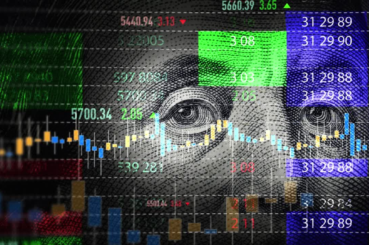Volatility: The Effects On Total Shareholder Return Awards

Find out why volatility plays a key role in the valuation of awards based on total shareholder returns.
CLICK HERE TO READ THE ARTICLE PUBLISHED IN FEI DAILY
Volatility is a measure of how much the price of a security, such as a share of stock, changes over time. It’s measured as a percentage with a low volatility percentage indicating the security’s price is relatively flat over time, and a high percentage indicating large fluctuations in price. Volatility can be above 100% and it can be based on historical volatility, implied volatility, or a combination of the two, depending on the circumstances.
Historical volatility is a statistical measure of how a security’s price has changed over a specific period. It’s a calculation of the dispersion from the average price over the period. While historical volatility is widely used in valuing stock-based compensation, implied volatility is considered a more reliable measure because it’s forward-looking. Implied volatility is based on actively traded options and is an indication of the market’s opinion of how the price of a security will change in the future.
The performance objectives of various types of stock-based compensation awards granted to employees all have the same goal in mind— incentivize strong performance that leads to growth in value. However, there are many forms of awards and an entity’s volatility can affect awards with different structures in different ways.
Total Shareholder Return Awards
Total shareholder return (TSR) is a measure of financial performance. TSR measures the price of a security at the end of a period against the price at the beginning of a period and can be positive or negative, depending on whether the price has gone up or down. TSR awards can be based on a company’s absolute TSR or relative TSR measured against a group of peer companies and/or an index.
TSR awards are valued using Monte Carlo (MC) simulation models that use fixed market inputs (e.g., price, volatility, risk-free rate, etc.) and a random error term to simulate future prices. The simulation is repeated thousands of times (sometimes even millions) to determine the probability of certain outcomes or the average outcome from the simulation iterations.
Absolute Total Shareholder Return
Absolute TSR awards are straightforward; if a company granting the award has a larger return on its outstanding stock over a defined period, the grantees earn additional shares and larger payouts. This is an ideal type of award if a company wants to only reward stock price appreciation, regardless of market conditions outside of the company’s control that might affect the stock price, such as a recession or other market event that affects all market participants.
Higher volatility increases the valuation of an absolute TSR award. To illustrate this, several MC simulations were performed where the volatility was adjusted and other inputs kept constant for an award based on a company’s annualized TSR over a three-year performance period. The future payout can range from 0% to 200% of the initial number of units granted depending on the company’s three-year annualized TSR. Though high volatility causes a company’s TSR to fall into lower threshold levels in a greater number of iterations, the high prices that sometimes occur multiplied by the high payout percentage in the top threshold cause the overall fair value to be higher when averaged.
Relative Total Shareholder Return
Relative TSR awards have become prevalent in recent years when overall market volatility has been high. The goal of relative TSR awards is to reward grantees when a company outperforms selected companies. Absolute TSR awards might not reward grantees for outperforming competitors when all participants in a particular industry have weak returns.
"Volility plays a large role in the valuation of awards based on TSR. However, the magnitude of its effect can be more pronounced or somewhat muted depending on the terms of the award.”
Volatility can have a more ambiguous effect on relative TSR Monte Carlo simulation results depending on how the payout is structured. As noted previously, high volatility in an absolute TSR award results in a higher fair value due to iterations with large payouts even though the high volatility lands a company in lower threshold buckets more frequently. This effect is still true with relative TSR awards, but it’s somewhat muted, and high volatility (relative to peers in this case) doesn’t affect the fair value as drastically as with absolute TSR awards.
READ MORE: Valuation Perspective: Top 3 Topics Energy Companies Should Consider At Year-End
However, when a negative condition is added to relative TSR awards, high volatility has a much more pronounced effect on the fair value of the award. A common negative condition is when a subject company has a negative TSR, the payout percentage is capped at 100%. With these awards, high volatility relative to peers has a similar and large effect on fair value where a company lands in lower threshold levels more often, but iterations with large, positive TSR causes the fair value to be pulled up significantly.
Conclusion
Volatility plays a large role in the valuation of awards based on TSR. However, the magnitude of its effect can be more pronounced or somewhat muted depending on the terms of the award. When a company plans to grant a performance-based award using total shareholder returns, it must carefully consider how to structure the award to make sure it’s rewarding the desired behavior and not inadvertently giving larger or smaller payouts than intended for certain levels of performance.
About The Experts
Petar Tomov is a Director in the Derivatives and Complex Securities Practice of Opportune LLP. He has over 12 years of experience focusing on the valuation of stock-based compensation, debt and equity instruments, contingent consideration, and intangible assets. Petar holds a B.S. in Mathematics and an MBA from the University of Texas at Dallas.
Jeff Nicholson is a Senior Consultant in Opportune LLP’s Derivatives and Complex Securities Practice. He assists companies with the reporting and analysis of derivatives and complex securities. Jeff has a B.S. in Business Administration and Management and M.S. in Finance from the University of Colorado.
Related Insights
Our experts are here
for you.
When you choose Opportune, you gain access to seasoned professionals who not only listen to your needs, but who will work hand in hand with you to achieve established goals. With a sense of urgency and a can-do mindset, we focus on taking the steps necessary to create a higher impact and achieve maximum results for your organization.
LeadershipGeneral Contact Form
Looking for expertise in the energy industry? We’ve got you covered.
Find out why the new landmark legislation should provide a much-needed boost for the development of carbon capture.






